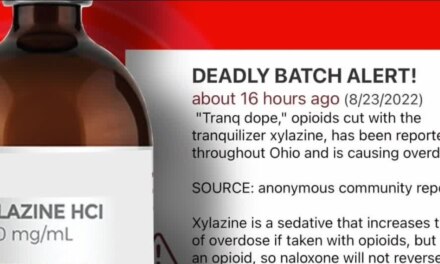This week’s Washington Post included an interesting first person account describing one patient’s attempt to relieve his chronic depression through ketamine therapy. Here’s a link: https://www.washingtonpost.com/wellness/2023/02/12/ketamine-depression-treatment-failure/
I was especially impressed by the care and attention he devoted to setting up a proper treatment plan. First, he consulted with his longtime therapist, to ensure he was an appropriate candidate. Got a referral to a physician with recognized expertise in ketamine therapy. Selected a suitable environment (the “setting”) and made sure his mental state was sound, his expectations reasonable (the “set”). He was as close to an ideal candidate as I’ve seen. He even had an aftercare plan that included regular exercise, meditation, and continued CBT.
This patient, by the way, is a 65 year old journalist who reports that “for much of my life I’ve suffered from clinical depression, with two periods of suicidal ideation.” He’s not suicidal at present, but he’s been on antidepressants and has begun to feel they are no longer as effective as they had once been.
As might be expected, he was attracted to the many glowing reports in our media describing rapid improvement and transformative life experiences following treatment with ketamine.
He thought, reasonably enough — why not give it a try?
The result: not good. In fact, he describes the experience as “terrifying”.
He is careful to acknowledge the many studies that show positive outcomes in around 75% of cases. I get the impression he doesn’t want his negative experience to prejudice other sufferers against trying the therapy.
I’m more skeptical. If 25% of patients in studies either 1) didn’t benefit or 2) had a negative experience, perhaps even a horrific one– that’s a lot. Especially given the rigorous controls and standard precautions taken in research. What about all the clinics currently operating in the US– there are more than 500 — largely in the absence of regulatory oversight? Surely we can’t expect them to exercise a comparable degree of caution in everyday practice.
I don’t like those odds. On one hand, highly motivated sufferers hoping for relief, willing to try almost anything. On the other, a largely unsupervised industry aggressively marketing ketamine as a miracle cure for serious depression, without much regard for protocol. For instance:
They’re Pushing Cut-Rate Ketamine Therapy on TikTok
And worrisome accounts in the media, such as this:
I Got Prescribed 75 Doses of Ketamine in 5 Minutes Online. Is That Good or Bad?
According to the article, the doctor behind that venture admits his license has already been revoked.
That doesn’t seem to have interfered with the company’s business success. I predict a healthy amount of regret for some future customers.













